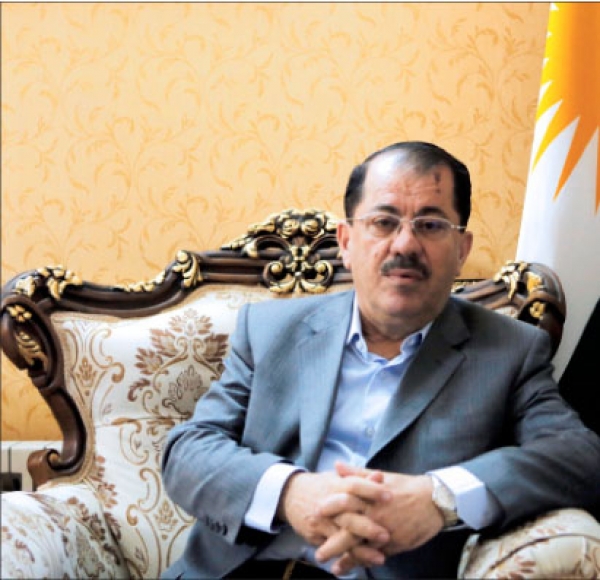The growth of terrorist groups in the Middle East has caused new blocking in the region, to study this matter, Mahdi Elyasi, the Ghanun Press Reporter, had a talk with Nazem Dabbagh, the representative of KRG, of which the main points as followed:
Mr. Dabbagh knows ISIS as an obvious instance of terrorist group without government in the Middle East. In his view ISIS has not been given birth today, in spite of being about to be weakened, it will not be vanished; even if it vanishes, other groups with such features and with Salafi attitude will substitute for it. Dabbagh believes this concern has caused security matters to change to the most important priorities of the governments in the region. In his opinion the growth of terrorist has been created in the atmosphere of government’s weakness, whereas security affairs are not controlled by a definite organization. He continued that they along with their friends could release 95% of occupied areas.
In a response to a question Dabbagh said following the events happened in the region, not only Arabian spring was not created but also winter happened instead. He added that if ISIS gets defeated, it will come to power somewhere else. Dabbagh replied to a question that the same position, the lack of a united and concentrated leadership over affairs, also exist in Kurdistan as in other countries.

Relating the necessity of forming a military unity against terrorist groups, Dabbagh said: the events in the region will not take place merely in a geographical area, in addition it should be studied what effects it may have in the future. Unfortunately today we see that when a security problem happens to a country of the region, the neighbors think they have been the winner in their policies. They do not guess if a terrorist group wins in country, what will happen next.
In my view the condition after Iran and the West agreement will change greatly that can be changed to a real spring to establish security and welfare in region.
In a reply to an important question concerning the condition of Kurdistan Region in regional alliances, Dabbagh said: in the region there are four powers Iran, Turkey, Saudi Arabia, Israel, therefore, blocs in the region have formed around Shia Iran and its opposition Turkey-Arabia. Kurdistan Region’s policy of Iraq in this condition is firstly to preserve its benefits according to the Constitutes of Iraq, that is, our policy should be somehow agreed with the policy of central government of Iraq. Secondly according to Kurds the benefit is to establish security and welfare around them.
On the subjects of Iran and Turkey’s relations in spite of regional competence, of Iran and six powers’ nuclear agreement and of the Kurdish security concern in Iran and Turkey Dabbagh declared that: During the history of Kurdish movement in Iraq, we have been looking for and spreading our rights. We have taken this policy to other Kurds of the region. We have not taken any measure against Kurds of other countries; furthermore we will not support other Kurdish groups’ actions against regional countries. That is why that we have and will not allow both sides to use our land against each other. By this policy we have been able to keep welfare of our border with Iran, Turkey and Syria.
Concerning the positions of KRG of Iraq relating Turkish government and Kurds negotiations Dabbagh said that KRG of Iraq will support any approach leading to peace and agreement, if there is no so, it tries to create, since peace is beneficial to Kurds.

